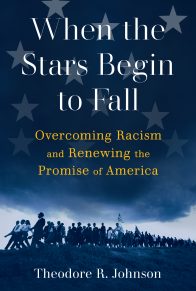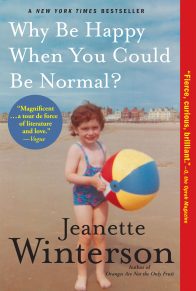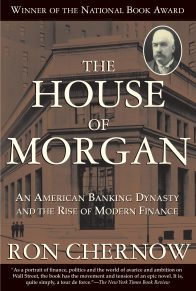The first thing we did that summer was jump into the sea naked. We tore off our travel clothes, grabbed a couple of old beach towels, and padded off the porch on tender feet.
We followed a pine-needle path that led through ferns and bayberry bushes, ouching our way over twigs and roots and then past a dwarf juniper to a lichen-encrusted granite ledge above Somes Sound. The path switched back over a series of smooth, descending ledges and down a rounded ridge to massive rocks matted with seaweed, encrusted with tiny white barnacles, and dotted with periwinkles. The tide was receding and the rocks and seaweed were wet and slippery.
At the water’s edge we moved quickly. This wasn’t a time for contemplation. The Jess brainwork the better. It was important not to think about the incoming tides that pushed enormous volumes of seawater up the sound from the open ocean. This was water that had found its way from the Arctic, branching off the Labrador Current and curling around Nova Scotia to the Maine coast.
The idea was to jump before ten thousand anticipatory nerve endings began a chorus of, “Don’t be a Fool!” Keeping toes from making contact with the water was mandatory lest they send an urgent loony-alert message to the brain. Headfirst was best. The question was who would jump first. We giggled. We grimaced. Frankie feigned a leap. I took the bait and jumped.
It is difficult to describe in any quiet way the sensation of a pampered urban body, humming along metabolically at 98.6 degrees Fahrenheit, being swallowed up by an unruly monster of nature approximately forty degrees colder. But I felt two involuntary urges. One was to scream. The other was to get the hell out of there!
Doing either one, however, was extremely bad form. As the initial plunger, I was required by tradition to come to the surface nonchalantly and exhibit no signs of urgency. I couldn’t lunge for shore. I had to pretend I had just jumped into the Caribbean. Frankie laughed knowingly, uttered an obligatory, “No way!” And jumped.
Now, an unspoken sense of solidarity came into play as we cheered each other and scrambled back onto the rocks, nerve endings in a welcome work stoppage.
“Not bad,” I said.
“Nonsense, it’s never been so cold,” she said. “Brrrr!”
As we stood on the rocks, like a couple of walking goose bumps, wet and salty, I felt a warm glow inside. I felt the sun’s warmth outside. I jumped again. Frankie followed. The water felt warmer this time. But it didn’t feel that way for long, so we scrambled out. By this time millions of brain cells were on red alert, demanding an immediate halt to the proceedings. We wrapped ourselves in towels and padded up the rocks to the porch.
Thus the summer officially began.
It was a Saturday, the second day of July, and we spent much of it unpacking and settling in for a long stay. We planned a summer that would extend deep into autumn, beyond Labor Day when most summer people departed. We had brought enough work to keep us busy until the middle of October.
We emptied bags of groceries, filling the refrigerator and kitchen shelves. We introduced ourselves to an occupation force of tiny black ants busily liberating brown sugar we mistakenly thought we had sealed in a porcelain box the summer before. We trooped from room to room, each with its faint whiff of mildew and mothballs, opening windows to pine-scented air. We unpacked boxes of books and files brought up for the summer’s work. We deployed our work machinery-Frankie’s typewriter, my laptop, printer, fax, and answering machine. Soon it felt as though we had been away for a long weekend instead of eight months. Once operational, we decided that there was no sense going to work prematurely. We’d go for an afternoon stroll.
The neighborhood around Frankie’s place is a peninsula of eighty acres that pokes out into Somes Sound in a northerly direction toward the top of the fjord. In the late nineteenth century, the peninsula was part of a huge granite-quarrying operation. To this day, slabs of its warm pink granite adorn buildings up and down the East Coast. It was an outdoor factory back then, and much of it couldn’t have been pretty. But the quarrying gradually died out, and the forest slowly reclaimed the land. Frankie’s place was halfway down a lane from the main road. The lane wound for a mile around granite and trees to the tip of the peninsula.
Frankie’s place was really the FitzGerald family place, a hallowed plot of three acres that Frankie’s father bought in 1947. When his children were growing up, Desmond FitzGerald brought them out from town to have picnics on the rocks by the sea. In 1972, six years after their father had died, the FitzGerald children, now young adults-Des, Joan, and Frankie-built a small house on the property. It was the first dwelling on the peninsula since the quarrying days. And it was a true camp, in the local sense of the word, being way out of town, deep in the woods, and not winterized. Except for occasional picnickers and clam diggers, the FitzGeralds had the peninsula pretty much to themselves. In 1975 another cottage went in up the lane, closer to the main road. But it was tucked into the woods by the shore, virtually invisible. Two more houses went up in the late 1980s, but there was plenty of distance and forest between neighbors. The rest of the peninsula remained dense with woods and unmolested, with plenty of room to prowl.
We strolled north along the lane toward the end of the point, stopping by a couple of places where chanterelles had grown in years past. Chanterelles are treasures among the wild mushrooms of Mount Desert. We made a habit of keeping close track of chanterelle locations, so that when their chalky-orange bodies pushed out of the ground we would not miss them.
We wandered deep into the forest, where the bark on giant tree trunks was encrusted with blue-green lichens. Exposed roots were matted in moss. The afternoon sunlight pierced holes in the evergreen canopy in rich golden shafts of angled beams that hit the forest’s pine-needle floor like spotlights. The gray carcasses of decaying trees, clumps of ferns, mats of moss, and red-capped russula mushrooms made the woods look like a primeval place where humans were strangers. Walking around wind-toppled trees and branches, we eventually came out on a granite bluff overlooking the sound a hundred yards north of the house. A startled cormorant flapped and splashed, taking off horizontally a few inches above the water. We made our way south along the granite shoreline back to the house.
Along the way, I noticed that the tide was low and pointed to the mats of seaweed and colonies of mussels crowded together just above and below the waterline. It was a perfect time to gather mussels for our first meal of the summer. I grabbed a pail and we headed down to the rocks, where these beautiful black-shelled bivalves clung to crevasses under the seaweed, sticking to one another and to the rocks with their natural Velcro.
The meaty body of a steamed blue mussel (Mytilus edulis) is almost too erotic for innocent eyes. Indeed, some history books reported religious objections by early Christians to consuming or having anything to do with these sexy bivalves. For a long time, they were thought of locally as trash-shellfish, no doubt because their shells clustered so ubiquitously on the lower tidal regions in these waters that they were available to anyone willing to bend a back to scoop them up. Julia Child called them “poor man’s oysters.” I became a devotee when I had my first heaping platter of moules ” la marini’re at a French restaurant in Bangkok in 1970. I became a devoted mussel gatherer as soon as I spied them clinging to the rocks in front of Frankie’s place.
Timing is essential to the gathering process because the tides rise and fall every twelve hours and the mussels are easily accessible only when the tide is low. Along this part of the Maine coast, the sea rises and falls fourteen and a half feet during the twice-a-month spring tides, when the moon and sun are aligned and exert their peak gravitational pull on the earth. At other times, the tidal change is less. But even during weakest tides, called neap tides, which also occur twice a month when the sun and moon are at right angles to the earth, the sea rises and falls eight and a half feet.
I preferred to gather mussels when a low tide occurred in the middle of a cool sunny day, when mosquitoes and deerflies were less likely to attack. I made my way, pail in hand, down the rocks to the water’s edge. There I usually stripped and jumped in. People have suggested that this is a strange way to approach mussels. One friend even wondered aloud whether I was trying to avoid “stressing” them the way a frontal land assault might. Since I couldn’t confirm having seen a nervous mussel, let alone a stressed one, I said I didn’t know.
In any case, it took less than fifteen minutes to fill the pail. I carried the mussels up the rocks to the porch and rinsed them with fresh water. We cleaned them and threw out a few mudders. (Mudders are closed shells filled with mud.) Using a clam knife, I scraped off the barnacles and pulled off their beards, then rinsed and rinsed again.
I believe that the simpler mussels are prepared, the better they are. I usually steam them or make stew. The recipe below evolved from the traditional French version because I found that mussels taken straight from the sea to the pot contain much more seawater than mussels from the fish market. That water, expelled when the mussels open, dilutes the broth and makes it salty. I wanted to reduce the liquid content of the broth in order to concentrate its flavor.
MOULES MARINI’re SOMES SOUND
In a small pot or skillet, melt 8 tablespoons of butter, add half a cup of olive oil, a cup of chopped green onions, 8 cloves of mashed garlic (house rule: never skimp on garlic), 2 cups of dry white wine, and a few sprigs of thyme.
Chop about 2 cups of parsley and/or cilantro and several sprigs of tarragon. (Try different combinations of fresh herbs, with more or less tarragon, basil, chervil, or oregano.)
In a big, covered lobster pot, bring a quart of water and/or dry white wine (enough to make about two inches of liquid in the bottom of the pot) to a vigorous boil and add about 90 cleaned mussels. (Leftovers are great in a tarragon vinaigrette.) Steam this mixture, pot tightly covered, for about 5 minutes, or until mussels open, shaking the pot once for even steaming. Drain out most of the liquid.
Pour the melted butter/oil/wine liquid combination over the mussels, toss in the chopped herbs, stir with a big spoon, and serve immediately in bowls with crisp, hot French bread to sop up the juice.
Before we sat down, I brought up some split logs from under the house and built a fire. Frankie uncorked a bottle of chardonnay and lit candles. As we feasted on our moules, the setting sun put on a show of pinks and blues, then turned the horizon a deep red. By nine o’clock we had finished off a salad, cheese, and the last of the wine. We rose and stood before glowing birch embers in the fireplace, formally toasted our arrival, and fell into a gleeful embrace. We were asleep within the hour.
The next morning I rolled over in the grand tradition of Sunday sloth, but the roar of a lobster boat, making its way from trap to trap on the water wouldn’t let me sleep. Awake, I anticipated the opening day of the FitzGerald Survival School. I rose quickly. Frankie stirred but showed few signs of life. I pulled drawstrings on the shades, rolling them up and letting the light pour in. The morning was sunny. A thin haze hung over the Sound.
Soon we were on the porch in T-shirts, shorts, and running shoes for a summer reveille regimen that almost never varied. We began bending, stretching, and flexing muscles that hadn’t bent or stretched much in the last hectic weeks before we decamped from Manhattan. The idea was to feel out our bodies, testing how far they had retrogressed into lumpen disgrace, and then begin a glorious and virtuous comeback. I envisioned a sinewy September torso, with rock-hard abdominals. Next, we jogged half a mile up to the main road, and back, working up a sweat. Then came the ocean.
We jumped into Somes Sound almost every morning, rain or shine, wind or fog, from July through Columbus Day and beyond, morning after morning, and most afternoons, too, summer after summer, with a regularity that went beyond habit to the edge of addiction. I say “almost” because every now and then we would be awakened by an icy, pelting rain, and Frankie would refuse to budge. But most of the time, it was the morning dip that kick-started the day. Visitors and houseguests who ventured a finger or toe into the water thought we’d gone mad. We told them that Frankie’s grandparents and uncles and aunts and cousins had been “swimming” in these waters for generations. And lots of summer people did the very same thing daily, in the name of character building, or cranial cobweb clearing. I don’t know why we did it, other than that we had always done it.
The reward for this rigor was a clear head and a wonderful breakfast. Orange juice, bowls of fresh Maine strawberries and yogurt, toast made with sourdough bread, local blueberry jam, and coffee.
Maine is berry heaven. By the time we arrived each July, the fresh-picked local strawberries were being sold at roadside farm stands and by men out of the backs of their pickups. Then sometime in mid-July, strawberries disappeared, usually before I remembered to stock up on a few extra quarts to freeze for autumn desserts. In mid- to late July came raspberries. Then sometime in August, Maine’s blueberry crop came rolling in. After that, the blackberries on bushes in back of the house ripened, yielding a quart or two of the sweet, seedy orbs.
On warm, sunny mornings, we’d eat on the porch table under a sun umbrella and read the morning papers, the New York Times and the Wall Street Journal. The fact that they weren’t that particular morning’s papers didn’t bother us in the least. They didn’t arrive in town each day until around noon, and we didn’t go get them until late afternoon. Since we didn’t feel like reading morning papers in the evening, we simply let them sit until the next morning and pretended they were hot off the presses. Since we didn’t watch TV or listen to the radio, whatever was in the papers was still news to us whenever we got around to reading it-sometimes two or three days later. Unless it was big news. In that case, somebody usually mentioned it in town or on the phone. We got our local news from the Bar Harbor Times and the Ellsworth American, which came out on Thursdays.
Continues…
Copyright ” 2003 by Jim Sterba. Reprinted with permission from Grove Atlantic, Inc. All rights reserved.













